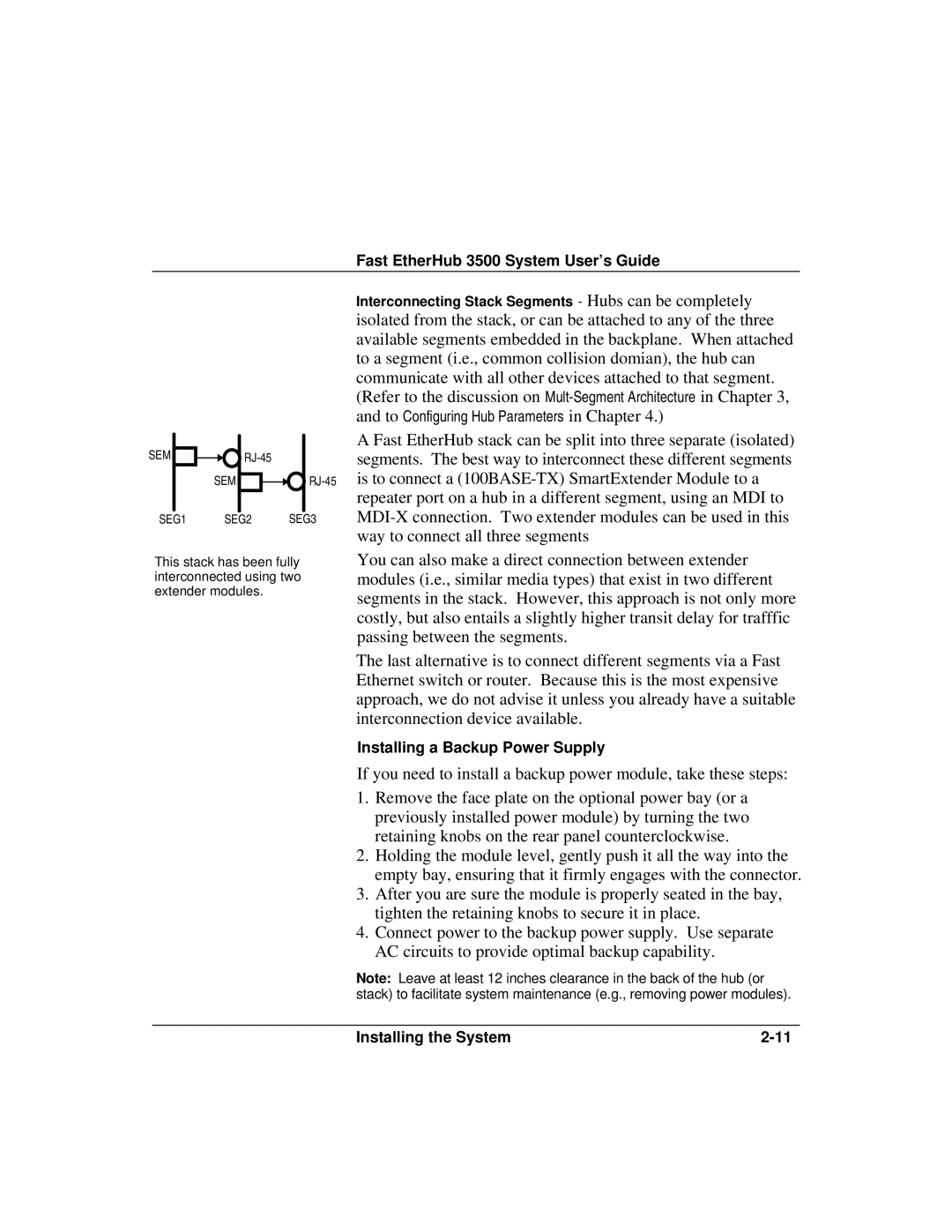
Fast EtherHub 3500 System User’s Guide
SEM ![]()
![]()
SEM ![]()
![]()
SEG1 SEG2 SEG3
This stack has been fully interconnected using two extender modules.
Interconnecting Stack Segments - Hubs can be completely
isolated from the stack, or can be attached to any of the three available segments embedded in the backplane. When attached to a segment (i.e., common collision domian), the hub can communicate with all other devices attached to that segment. (Refer to the discussion on
A Fast EtherHub stack can be split into three separate (isolated) segments. The best way to interconnect these different segments is to connect a
You can also make a direct connection between extender modules (i.e., similar media types) that exist in two different segments in the stack. However, this approach is not only more costly, but also entails a slightly higher transit delay for trafffic passing between the segments.
The last alternative is to connect different segments via a Fast Ethernet switch or router. Because this is the most expensive approach, we do not advise it unless you already have a suitable interconnection device available.
Installing a Backup Power Supply
If you need to install a backup power module, take these steps:
1.Remove the face plate on the optional power bay (or a previously installed power module) by turning the two retaining knobs on the rear panel counterclockwise.
2.Holding the module level, gently push it all the way into the empty bay, ensuring that it firmly engages with the connector.
3.After you are sure the module is properly seated in the bay, tighten the retaining knobs to secure it in place.
4.Connect power to the backup power supply. Use separate AC circuits to provide optimal backup capability.
Note: Leave at least 12 inches clearance in the back of the hub (or stack) to facilitate system maintenance (e.g., removing power modules).
Installing the System |
